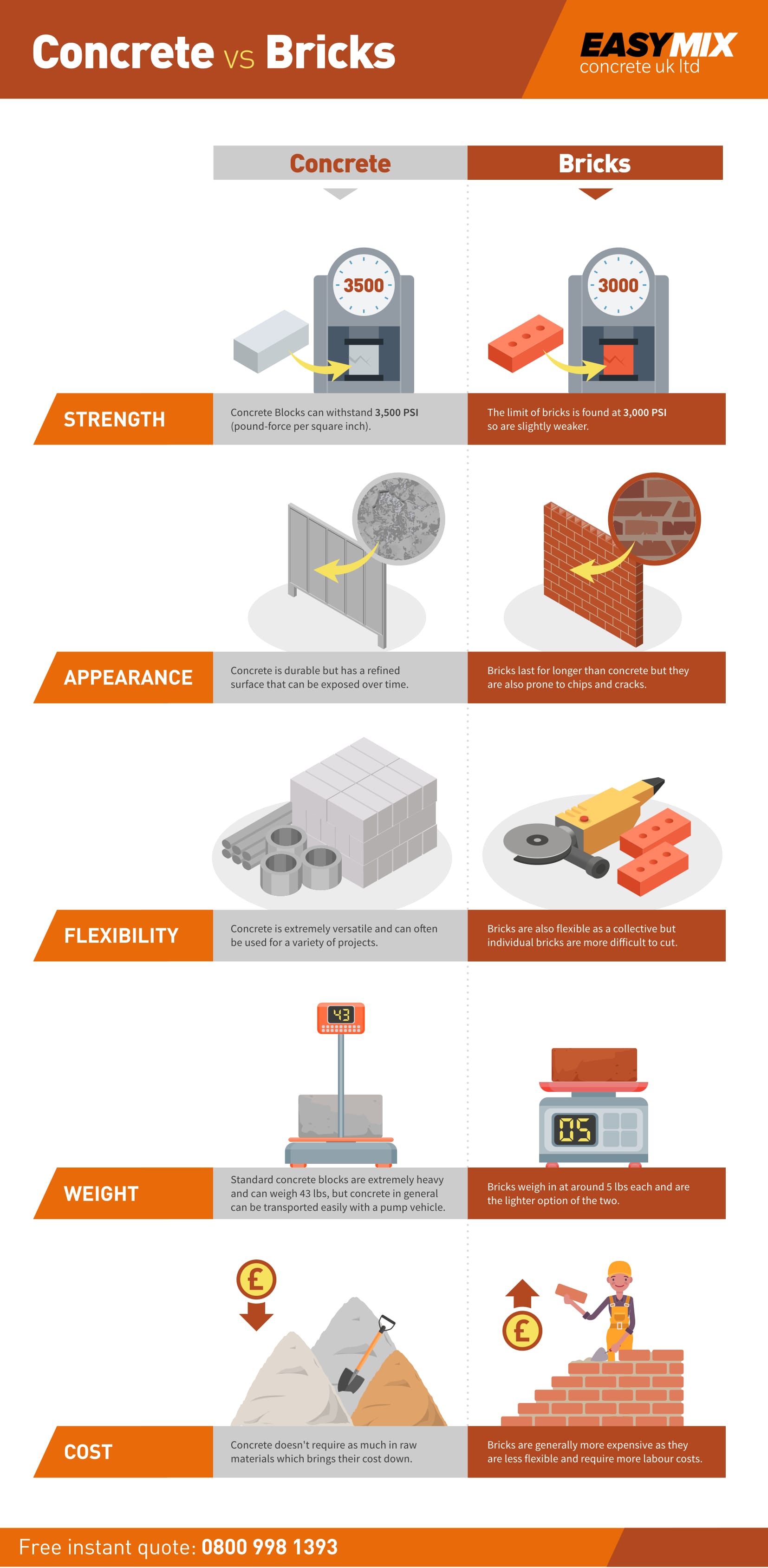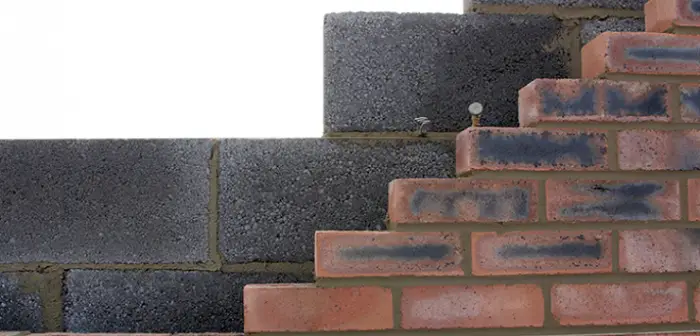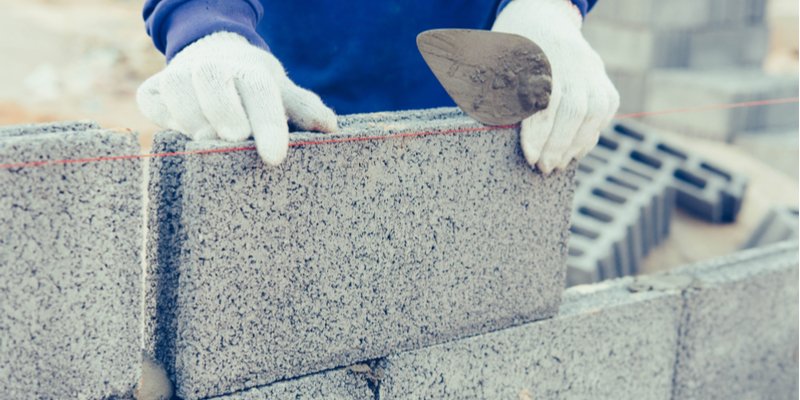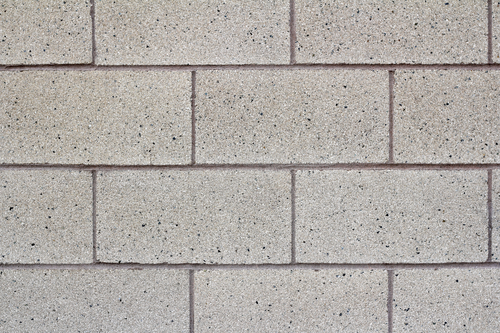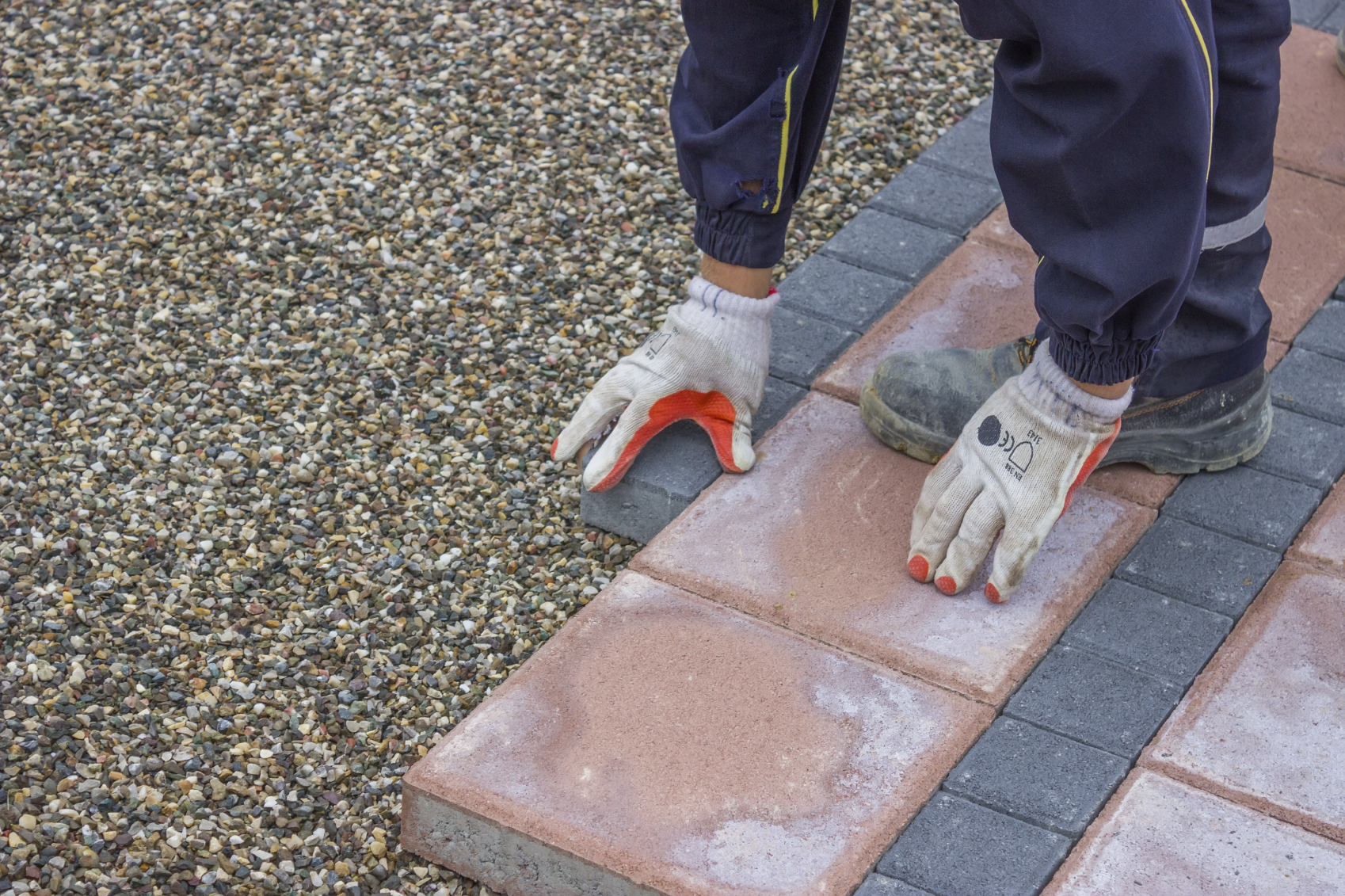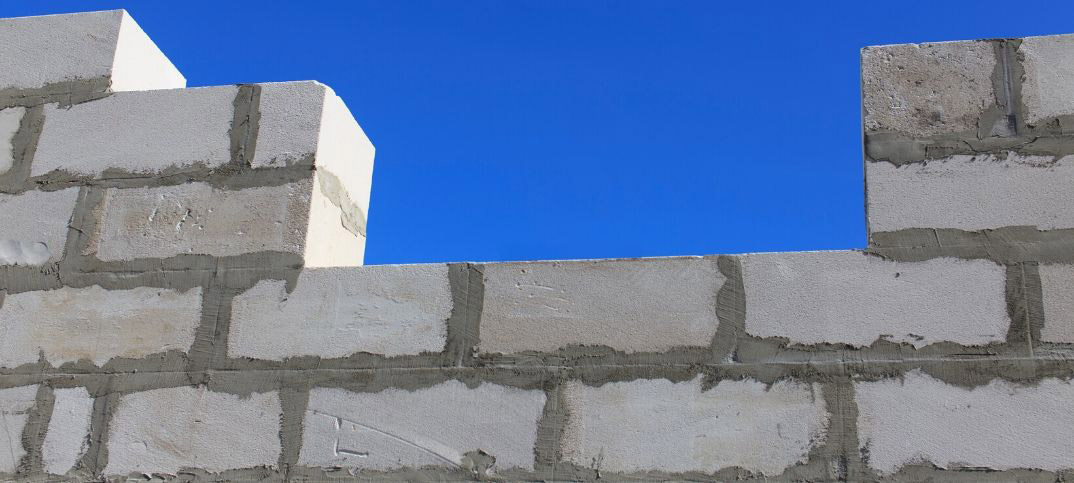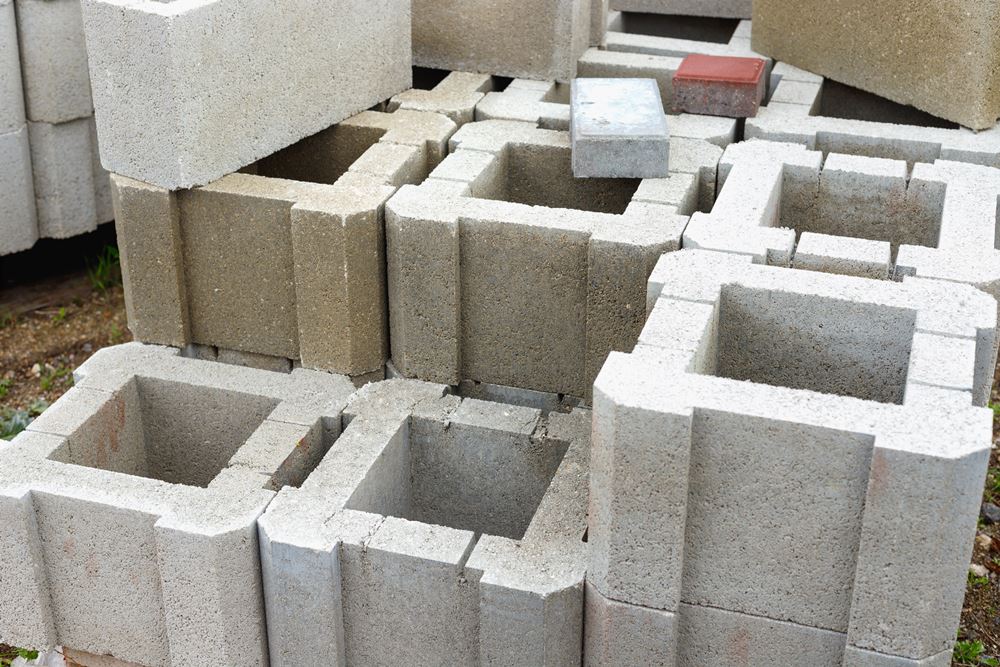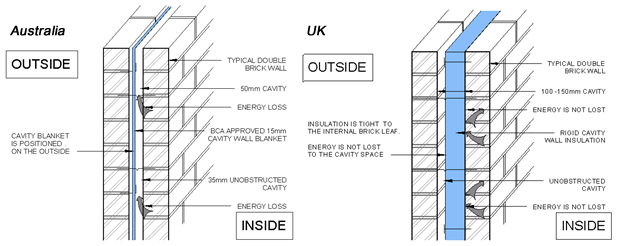If you are considering replacing or adding a walkway patio or driveway to your outdoor living area you may become befuddled over the myriad of choices you have.
Concrete blocks versus bricks.
Comparing the costs and benefits.
In general size usage purpose and composition of bricks and blocks make the difference.
Some paving materials are more cost effective than others and certain types are more durable and easier to maintain.
The same cannot be said about blocks.
Square foot price of concrete per square foot.
Concrete block vs brick insulation value.
Flagstone pavers cost 15 to 20 per square foot.
A concrete masonry unit cmu is a standard size rectangular block used in building construction is 2185 1 2005 3 10 solid block a block which has solid material not less than 75 percent of the total volume of the block calculated from the overall dimensions.
According to mechanical properties of unreinforced brick masonry the average concrete block can withstand 3500 psi while the average clay brick can withstand 3000 psi.
They are not as recyclable as bricks as they are made concrete.
Both bricks and.
Block are larger size than brick and are often used as partitions in both interior and exterior applications as well as forming the structure of a building.
A single brick costs 0 50 to 5 00 and you ll need two for each square foot.
Blocks on the other hand are commonly made from concrete.
Brick and block are both relatively strong materials but their strength in a wall is affected by the type and.
Non modular sizes for brick is 6 1 2 the following non modular sizes of the.
According to inspectapedia basic brick walls have an insulation value or r value of 0 2 per square.
About 1 50 for materials alone.
This contributes to the lower cost.
According to radhika shukla 2014 published in.
Advantages of concrete block pavers concrete pavers are cheaper than the brick variety.
Paver prices vary based on the stone you choose.
Many dense blocks are stronger than this.
According to the masonry advisory council all concrete blocks must have a minimum compressive strength of 862 kilogram per square inch.

